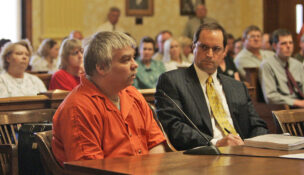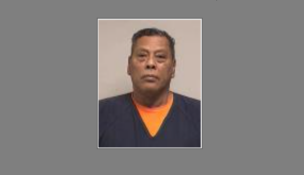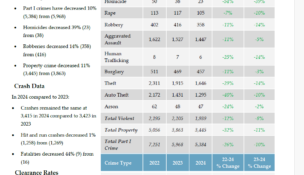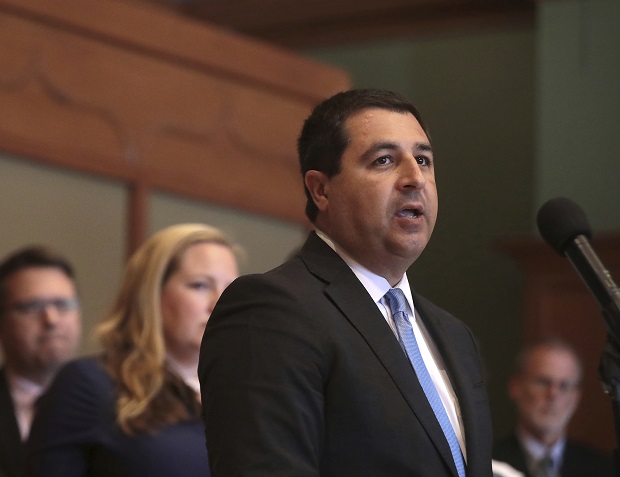Assembly hears testimony on SPD bill
By: dmc-admin//January 21, 2004//
State attorneys educated the state Assembly’s Committee on Corrections and the Courts in testimony on Jan. 14, concerning 2003 Assembly Bill 616, which would increase eligibility for appointment of counsel by the State Public Defender.
The bill, introduced by Rep. Terri McCormick, among others, would change the current standards — still based on 1987 AFDC eligibility — to mirror W-2 eligibility, and create an estimated additional 44.25 full-time staff positions at the SPD.
Under the proposed criteria, a person would be indigent for purposes of SPD representation if his household income does not exceed 115 percent of the federal poverty line and the household assets — after excluding up to $10,000 for a vehicle and the value of the person’s home (up to $30,000) — do not exceed $2,500.
The bill would also require the SPD to provide legal representation to any person, regardless of whether the person is indigent, who seeks representation and is the subject of an involuntary commitment proceeding for mental health or alcoholism treatment, a protective placement proceeding, or a proceeding to appoint a guardian because the person is alleged to be not competent to refuse psychotropic medication.
Introducing the bill, Rep. McCormick stated that it ensured both “constitutional integrity and fiscal responsibility.”
The bill would save money, according to McCormick, because, although the SPD criteria is limited by the obsolete standards for indigency, courts have an independent constitutional duty to appoint counsel for those who are actually indigent, and that expense is ultimately borne, at higher cost, by the county in which the court sits.
Currently, McCormick noted, a defendant earning more than $2.87 per hour earns too much to qualify. But when counsel is appointed by the county, the average fee is $69 per hour, more than either the $40 per hour paid to private attorneys appointed by the SPD, or the cost of using a staff attorney.
Sharon Nedrakowski, of the Wisconsin Counties Association, testified in favor of the bill, asserting the counties are frustrated by the clearly outdated eligibility requirements that force them to pay fees that SPD was created to pay and should be paying.
“Unless the SPD eligibility standards are changed to reflect real world standards of indigency, counties will continue to pay twice the cost that the SPD office would pay,” Nedrakowski asserted.
She also noted the difficulty in making budgetary decisions, because, in a small county, if the county has to provide counsel for even a single homicide, that year’s budget is destroyed.
Rachel Schneider, of Quarles and Brady, in Milwaukee, and chair of the Legal Services Committee of the Milwaukee Bar Association, also supported the bill with testimony.
Asserting, “the term ‘unrepresented indigent’ should be an oxymoron,” Schneider called the bill “the one and only that could have an impact on the problem, and the most cost-effective way of upholding the Constitution.”
Besides lower per hour cost, Schneider cited the advantages of centralized intake processes, and greater expertise in criminal law. The bill would provide “more hours of representation per dollar” than any other solution, Schneider testified.
State Bar Past-President Gerry Mowris also testified in favor of the bill, noting the hidden costs and inherent conflicts of interest when unrepresented indigents appear in court.
In such a situation, the district attorney is placed in the untenable position of advising the person he is paid by the State to prosecute, and explaining the law to him.
In addition, the SPD has procedures to recoup payments from defendants, while the counties don’t. Also, when an indigent person is denied representation by the SPD, the circuit court judge must conduct an indigency hearing to determine whether the county will pay for it.
Calling the current method of representing indigents, “a tremendously expensive process to not honor constitutional rights,” Mowris noted that, once a person is convicted and imprisoned, he loses his job and becomes eligible, whereupon an attorney must be appointed for appeal, and the conviction may be reversed because no attorney was provided at the trial level.
“For the system, and for the sense of justice, you have to realize the U.S. and Wisconsin Constitutions say people have the right to an attorney,” Mowris added.
Rep. Scott Suder then took offense after Mowris noted that the State doesn’t hesitate to pay $250 per hour in attorney fees when a legislator needs one.
Pamela Pepper, a former assistant U.S. attorney, and currently a solo attorney practicin
g criminal law, and a member of the boards of the MBA, State Bar, SPD, and Association of Women Lawyers, spoke in favor of passing the bill, as well.
Pepper also discussed the hidden costs to the system of unrepresented indigents, noting the multiple hearings afforded defendants while they try unsuccessfully to obtain counsel before eventually concluding that they’ll have to do without one, even though they don’t understand their rights.
Pepper further noted the inconsistencies between different judges in whether they appoint counsel at county expense, stating, “the consequence is we are inconsistently upholding constitutional rights.”
Pepper bemoaned that, “Wisconsin, long considered a forerunner in upholding the right of the accused, is now upholding those rights only sporadically.”
| |
||
|
Links |
||
| |
||
State Public Defender Nick Chiarkis and Deputy Administrator Megan Christiansen also testified in favor of the bill. Chiarkis estimated that the savings from transferring representation by the SPD from the counties would amount to $3.4 million per year.
When questioned by Rep. Suder how 44.25 staff attorneys would be able to absorb the increased load of cases handled by the SPD, Chiarkis had to point out that SPD staff attorneys’ case loads are set by state statute, and the 44.25 number is in accordance with that statute.
Also testifying in favor of the bill were Barbara Sella of the Wisconsin Catholic Conference; Philip Biltwell, assistant county administrator of Rock County; and Diane Fremgen, chair of the Wis-consin Clerk of Circuit Courts Associa-tion.
Despite the fact that no one testified in opposition of the bill, some legislators expressed resistance, based on reasons extraneous to the bill, such as the above-mentioned state-mandated case load for staff attorneys.
Other wholly extraneous issues providing cause for resistance amongst some legislators were the need for translators in some cases; the fact that children are entitled by the Constitution to counsel, even if their parents could afford one (although the money can be recouped from such parents); and, as a result of conflict of interest in cases involving multiple defendants, some defendants must be given private counsel, rather than staff counsel.
For example, one legislator suggested that bilingual attorneys should be paid more because they can act as translator for their client, as well as attorney, even though that is both physically impossible and irrelevant to the issues addressed by the bill.
David Ziemer can be reached by email.
Legal News
- Steven Avery prosecutor Ken Kratz admits ‘mistakes were made’
- Colombian national extradited to Milwaukee faces International narcotics-trafficking conspiracy charge
- MPD: Milwaukee homicides down nearly 40 percent compared to last year
- EVERS: Republican lawmakers No-Show at special meeting to release statewide PFAS funding, stabilize healthcare access
- Wisconsin ICAC Task Force conference on Missing and Exploited Children highlights increase in sextortion cases
- More than 300 Wisconsin officers back in law enforcement after being fired or forced out
- Former Trump staffer who said to ‘fan the flame’ after 2020 loss hired to lead Wisconsin GOP
- Gov. Evers appoints David Casey to Serve as DOR Secretary
- Former Marine sentenced for Molotov Cocktail attack against Planned Parenthood Clinic
- ABA names 34th Annual Margaret Brent Women Lawyers of Achievement Awards honorees
- FBI launches criminal investigation into Key Bridge collapse
- Man charged in slaying after woman’s leg found at Milwaukee-area park
WLJ People
- Power 30 Personal Injury Attorneys – Russell Nicolet
- Power 30 Personal Injury Attorneys – Benjamin Nicolet
- Power 30 Personal Injury Attorneys – Dustin T. Woehl
- Power 30 Personal Injury Attorneys – Katherine Metzger
- Power 30 Personal Injury Attorneys – Joseph Ryan
- Power 30 Personal Injury Attorneys – James M. Ryan
- Power 30 Personal Injury Attorneys – Dana Wachs
- Power 30 Personal Injury Attorneys – Mark L. Thomsen
- Power 30 Personal Injury Attorneys – Matthew Lein
- Power 30 Personal Injury Attorneys – Jeffrey A. Pitman
- Power 30 Personal Injury Attorneys – William Pemberton
- Power 30 Personal Injury Attorneys – Howard S. Sicula











